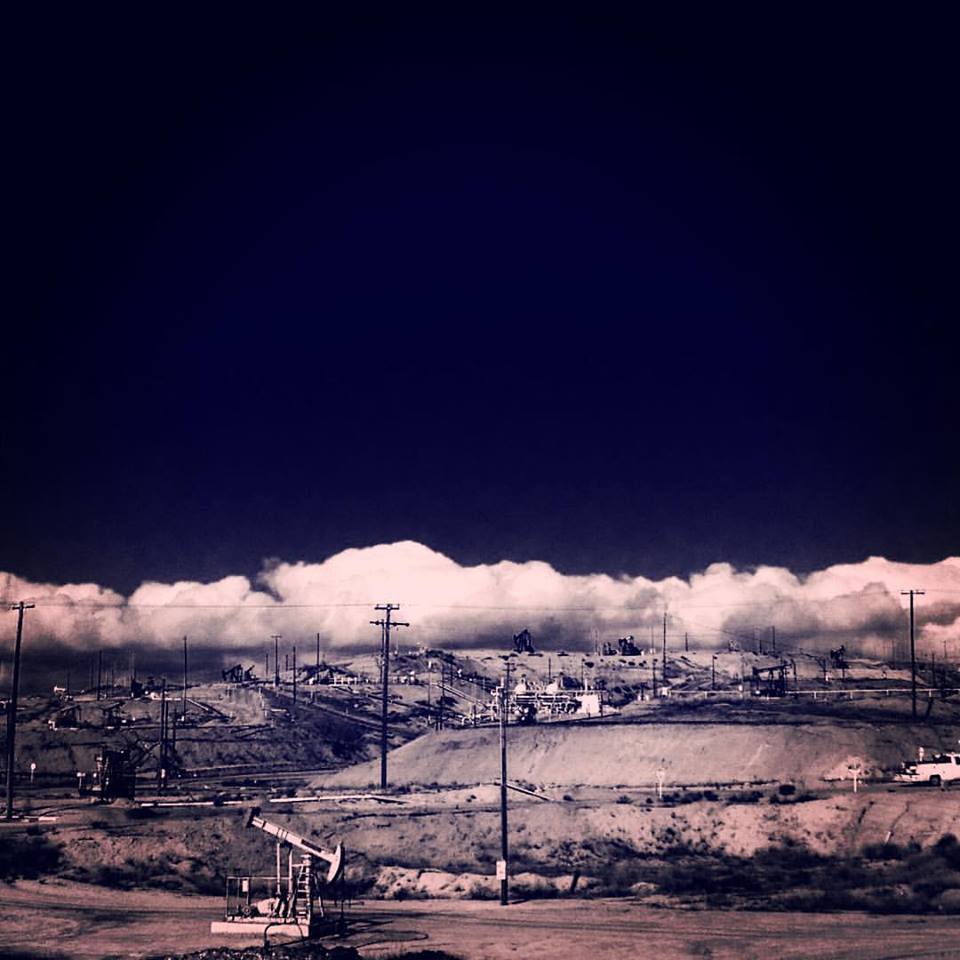The Monitoring Team: Michael Roh, Henrik Vorloeper
The European Union Commission Holds Talks with Gazprom on Anti-trust Case
The meeting on March 9th between Gazprom’s deputy chief Medvedev and the European Competition Commissioner Verstegen allegedly turned out to be “mutually acceptable” for both parties in the antitrust case imposed by the European Union against Gazprom. The Russian gas company fights allegations of unfair pricing and misuse of its market power in several Central European countries. The EU has increased its regulative power substantially over the last decade, which has already become a burden for Gazprom’s business model in Europe. The antitrust case is a signal for Moscow that the EU Commission is an executive power in Europe and its goal is to reduce Gazprom’s monopolistic influence in Europe. A potential settlement in this case between both parties, however, is also a sign that both parties have interest in the continuation of positive business relations. Gazprom according to the sources seeks to avoid a potential fine of US$ 7.6bln fine and is likely to make concessions elsewhere to the EU. The antitrust case is running since 2011 and has not been bound on any closing date, which has given both parties opportunities for an extrajudicial solution.
Katya Golubkova and Foo Yun Chee, 2016. Gazprom aims for amicable solution in EU antitrust case. Reuters, 9 March 2016. http://uk.reuters.com/article/uk-russia-gazprom-eu-antitrust-idUKKCN0WB2BH
Norway Wealth Fund Continues to be an “Ethics Watchdog”.
The US$ 830 billion Norwegian Sovereign Wealth Fund has pulled out 27 firms with links to coal from its investment list. The Fund follows a policy of climate protection and wants to be a role model for other investors. The fund also dropped other companies that are involved in gloomy businesses mostly related to environmental issues. In the past years the fund’s management has on several occasions banned businesses in which it does not desire to invest, such as the arms industry. Other ways to become a member of Norway’s blacklist is alleged corruption and human rights abuses such as in some unethical Indian textile industries or construction in Qatar. One prominent example is Brazil’s oil major Petrobras, which was blacklisted. As the “Ethics Watchdog”, the Norwegian Wealth Fund might follow a democratic supported mission, but it might one day run out of investment options. Far more concern for foreign companies, however, might have its growing political influence backed by a lot of fiscal power.
Joachim Dagenborg and Gwladys Fouche, 2016. Exclusive: Ethics watchdog for Norway’s $830 billion wealth fund sees increase in bans on firms. Reuters, 11 March 2016. http://www.reuters.com/article/us-norway-swf-ethics-idUSKCN0WD15Z
Reuters, 2016. Norway’s mega-fund sells coal-linked firms in climate drive. 9 March 2016. http://www.reuters.com/article/norway-swf-climatechange-idUSL5N16H455
Nigeria Lowers Oil Production After Offshore Pipeline Attack
Nigeria will stop oil flows to Forcados, one of the country’s biggest export terminals at least until May, after an attack against the underwater pipeline leading to the terminal. The attack was one of the most sophisticated, but also one of the worst in years, which could seriously damage Nigeria’s oil industry. In the past, Africa’s top oil producer has been a victim to frequent attacks against its oil infrastructure, in which the national output in peak periods of violence could be cut in half, but under water is rather unusual. The suspects are militants who deployed divers, according to western security experts and diplomats. The attacks could be related to the expiring government program to support former rebels, but also increased corruption. Almost 250,000 barrels a day of oil were scheduled to be exported from the Forcados Stream in both February and March. However, analysts believe that the decline in Nigeria’s output has helped the oil price to rise, though it is not yet clear in what significance.
Maggie Fick in Lagos and Anjli Raval in London, 2016. Bombed pipeline to hit Nigeria oil output. Financial Times, 8 March 2016. http://www.ft.com/cms/s/0/0f4f4820-e53f-11e5-a09b-1f8b0d268c39.html?siteedition=uk#axzz42biR2xvV
E.on is the Biggest Loser
The German utility reported its biggest annual loss after writing down the value of its coal and gas-fired power plants by EUR 8.8 billion. Its counterpart on the domestic market, RWE, also faces losses this year. Yet another major energy company crippled from low oil prices, but perhaps this is not the only reason, although significant. As Financial Times reports, first and foremost, the structural reforms of the German energy mix towards renewables and the phase-out of nuclear power has created the loss, even though E.on switched its attention to renewables and even outsourced its conventional power generation. The low oil price, followed by low gas and electricity prices, is making things even worse. By April the company expects to present new numbers to reveal the company’s situation.
Guy Chazan in Berlin, 2016. Eon reports largest loss after coal and gas writedowns. Financial Times, 9 March 2016. http://www.ft.com/cms/s/0/b5fffac6-e5c5-11e5-ac45-5c039e797d1c.html#axzz42biR2xvV
Vera Eckert, 2016. E.ON faces further losses on expiry of forward power deals. Reuters, 9 March 2016. http://www.reuters.com/article/e-on-results-powerhedges-idUSL5N16H1T3
Russian Suppliers Produce More Despite Oil Glut
Russian oil producer Gazpromneft reports a 21.3% increase in oil production in 2015 and plans to increase oil production by 2025. In spite of the struggle of global producers caused by low oil prices, Gazpromneft demonstrates its resiliency also over other Russian producers, which reported output increases for 2015 as well, but far lower than 20%. However, the company admitted lower net profits, down by 10% since 2014, which it related to an unfavorable situation to manage its debt as it became more difficult to borrow foreign money. One of the major reasons of the robust performance is the high net revenue per barrel for Gazpromneft in relation to the global oil price development. While Brent decreased from US$ 120 to $40 in twelve months, Gazpromneft’s netback revenue fell by only $20 per barrel from $40 per barrel. Whether Gazpromneft can continue this trend depends largely on two factors: First, if Russia curbs its production, which it has previously agreed with OPEC members, Gazpromneft would have to reduce its expansion plans. Second, if the Russian state sticks to its plans to put a higher burden via taxation on the oil industry, Gazpromneft would have to change its strategy as well.
Irina Slav, 2016. Gazprom Weathers Price Rout, Sets Ambitious Plans for Future. OilPrice.com, 9 March 2016. http://oilprice.com/Latest-Energy-News/World-News/Gazprom-Weathers-Price-Rout-Sets-Ambitions-Plans-for-Future.html
Georgians Protest Against Gazprom Negotiations
Protesting the Georgian government’s negotiations with Gazprom, thousands of Georgians gathered in Tbilisi to form a human chain stretching 7km. Georgia’s Energy Minister Kakha Kaladze initially justified the talks with Gazprom, emphasizing the need to diversify imports. The opposition party was skeptical, believing that increased dependence on Russian energy would make Georgia politically vulnerable to Moscow’s demands. Interestingly, the former prime minister of Georgia, Bidzina Ivaniskvilli holds 1% of Gazprom’s stock, whose influence in the government’s decision making is still great. The protesters, in support of the opposition party were successful, as the government announced it had signed a deal on Friday with Azerbaijan to increase gas supplies. Under this deal, Georgia will receive 500 million cubic meters annually from Azerbaijan’s SoCar.
Armine Sahakyan, 2016. How Georgia’s Pubic Foiled Gazprom and Russia. The Huffington Post, 11 March 2016. http://www.huffingtonpost.com/armine-sahakyan/how-georgias-public-foile_b_9432634.html
Misha Dzhindzhikhashvili, 2016. Georgians Form Human Chain to Protest Talks With Gazprom. Associated Press via ABC News, 6 March 2016. http://abcnews.go.com/International/wireStory/georgians-form-human-chain-protest-talks-gazprom-37438973
The US Democratic Candidates’ Positions on Fracking
The statements from Senator Bernie Sanders and Secretary of State Hillary Clinton at the latest US Democratic Presidential Debate revealed a piece of how the energy industry will be affected by either candidate taking the presidency. After being asked the candidates’ positions on fracking, Clinton stated the many conditions when fracking should not occur, but generally did not outright condemn fracking. Sanders, on the other hand, stated, “My answer is a lot shorter. No, I do not support fracking” and went on to say that those who believe fracking can be done safely are wrong. Despite the environmental benefits that natural gas recovered through fracking provides, such as switching from coal, and lowering emissions, the candidates are likely pandering to voters in the party, who are largely misinformed by unsubstantiated propaganda from the environmental left.
Katie Fehrenbacher, 2016. Clinton, Sanders Slam Fracking in Flint. Fortune 7 March 2016. http://fortune.com/2016/03/07/clinton-sanders-slam-fracking-in-flint/
Robert Rapier, 2016. Clinton and Sanders Are Pandering To Voters on Fracking. Forbes, 8 March 2016. http://www.forbes.com/sites/rrapier/2016/03/08/the-democratic-candidates-pander-on-fracking/#5177128b4f54
Chevron’s Gorgon LNG in Australia, What it Means for Asian Market
Chevron’s US$ 54 billion Gorgon LNG project in Australia has started production, and will soon ship LNG to the already oversupplied market. Producers’ revenues will shrink as prices fall even lower, but some believe the supply glut will trigger a liquid spot market in Asia where 70% of global LNG is consumed. Moving away from oil-linked pricing, long-term contracts, and destination clauses, the market is already anticipating an evolution in contracts. Singapore Exchange and CME Group are two investment firms negotiating contracts, hoping to create regional gas hubs. The LNG market will undergo major changes when the first Gorgon LNG cargo is exported, less than a month after the first LNG cargo was exported from US Cheniere Energy.
Jacob Gronholt-Pedersen and Henning Gloystein, 2016. Chevron’s Gorgon start-up to hurry along Asian LNG spot trade. Reuters, 8 March 2016. http://www.reuters.com/article/us-australia-lng-chevron-idUSKCN0WA0ZE
It’s a Buyers’ LNG Market in Asia: China and India Pressure Qatar
The global glut is strengthening buyers’ positions, and spot prices are the lowest in five years. After India’s Petronet successfully renegotiated with Qatar’s RasGas to cut prices by almost half, agreeing to a pricing formula based on a three-month oil price average instead of the previous five-year average, CNPC Chariman Wang Yilin in Beijing said the company is looking to renegotiate its long-term LNG supply contracts with Qatar. Asian buyers are fully aware of their favorable position, as Chinese, South Korean, and Japanese companies were in talks last month to discuss a possible alliance. Current long-term LNG supply contracts are linked to crude prices, usually with price reviews.
James Paton, 2016. China Joins India Seeking Better LNG Contracts for Buyers. Bloomberg Business, 11 March 2016. http://www.bloomberg.com/news/articles/2016-03-11/china-joins-india-seeking-better-lng-terms-as-contracts-weaken
Ships Take Course for Cheaper Route than Suez Canal
Cargo ships from the Atlantic to the Indian Ocean increasingly prefer to take longer routes and expend more fuel instead of going through the Suez Canal, according to a report by Danish SeaIntel Maritime Analysis. The preferred way has become the southern route, around the African cape, which can take up to a week longer, depending on the speed shippers are willing to go. The reason for this is simply the fact that fuel for ships has become cheaper and transit fees for Suez became higher. Vessels sailing from Asia to the United States’ East Coast via the Suez Canal have to pay on average US$ 465,000 for passage, according to SeaIntel, which calculated that the South Africa route would save an average of $235,000 per voyage. The logical consequence is for Suez to cut its fees in half. However, for Egypt this comes at a time when it was going to invest $8 billion in order to expand the canal. Suez is one of Egypt’s major income sources for foreign currency and thus immensely important for political stability.
Charles Kennedy, 2016. Oil Tankers Shun Suez Canal In Search of Cheaper Route. OilPrice.com, 2 March 2016. http://oilprice.com/Energy/Energy-General/Oil-Tankers-Shun-Suez-Canal-In-Search-of-Cheaper-Route.html

